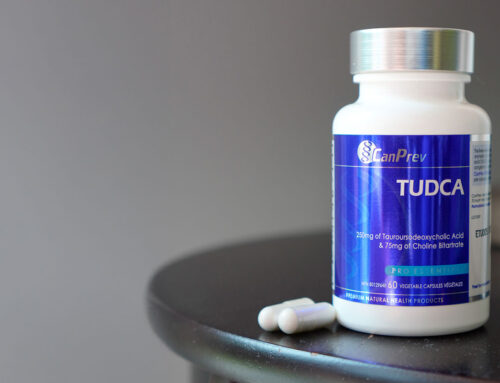What Is It?
Selenium is a trace mineral naturally occurring in the soil, in certain foods, and very small amounts can be found in natural water sources.
Selenium’s main role is acting as an antioxidant and has many benefits to the body. Selenium is also a chief component of the molecules which are necessary for your body to be able to create and use thyroid hormones, called ‘selenoproteins’.
The top health benefits of Selenium include:
- regulating the thyroid
- boosting immunity
- reducing asthma symptoms
- supporting fertility for both men & women
- defending against heart disease, cancer, and oxidative stress
- increasing longevity
Antioxidants like vitamins A, C, E, and minerals like Zinc, Manganese, and Selenium are key in facilitating the phase I and phase II detoxification processes in the liver.
Selenium also plays an important role in prostate health, helping to maintain healthy levels of Prostate-Specific Antigen (PSA) which is the marker for prostate cancer.
More on the Benefits of Selenium
→ ANTIOXIDANT POWER, IMMUNE-BOOSTING & CANCER PREVENTION
Selenium acts as a powerful antioxidant and defends against oxidative stress. There is also a strong correlation between serum levels of Selenium and a reduced risk of several types of cancer.
Studies show that foods high in selenium may prevent cancer by helping with DNA repair, preventing cancer cells from replicating and by reducing free radicals in the body [1].
This mineral is such an important factor in supporting the immune system that it’s a key ingredient in our Immuno Multi formula.
→ HEART HEALTH & REDUCED INFLAMMATION
Selenium-rich foods (and the selenoproteins that they help form) can also prevent platelets from aggregating (which improves blood flow), prevent oxidative damage to cells (e.g. prevent the oxidative modification of lipids) thereby reducing inflammation and lowering the risk of cardiovascular disease [1].
People with low levels of serum Selenium have been shown to be at higher risk of cardiovascular disease. For these reasons, experts have suggested that selenium supplements could reduce the risk of cardiovascular disease or deaths associated with cardiovascular disease.
→ REGULATES THYROID FUNCTION
Selenium is probably most well-known for its role in maintaining thyroid health since it works together closely with Iodine – another important trace mineral.
Concentrations of Selenium are higher in the thyroid gland than anywhere else in the body. It helps to regulate and recycle our Iodine stores and is needed to produce the critical thyroid hormone T3, which regulates metabolism.
‘Selenoproteins’ protect the thyroid gland when we are under stress. They help flush out oxidative and chemical stress, and even social stress – which, as most of us have experienced, can cause many negative reactions in our body.
Signs, Symptoms, and Causes of Selenium Deficiency
A selenium deficiency is generally observed in areas where the soil does not contain much of it and the mineral content in soil can differ dramatically depending on location.
Even in food sources, the amount of Selenium is largely dependent on soil conditions that the food grew in. Therefore, even within the same food, levels of selenium can vary widely, and the mineral’s benefits may be more prominent in crops grown in certain locations more so than others.
Health Experts are becoming increasingly concerned as evidence suggests that a decline in blood Selenium levels is occurring in parts of the U.K. and other European Union countries. The worry is with several potential health implications that can result due to a deficiency in this mineral.
Selenium deficiency signs & symptoms include:
- Muscle pain or weakness
- Discolouration of hair or skin
- Whitening of the fingernail beds
- Thyroid dysfunction
- Weakened immune system
- Infertility in men and women
- Depression
- Cognitive decline
While Selenium deficiency is very rare in Canada and the United States (unlike other nutrient deficiencies that are more common) it is certainly wise to ensure you’re getting enough.
There are some people who do, in fact, have a Selenium deficiency due to a poor diet and conditions like Crohn’s disease that impair absorption of the nutrients your body needs to heal and thrive.
Additionally, many studies tell us that having Selenium levels above the RDI (recommended daily intake) is when it starts to have therapeutic effects, like lowering PSA for example.
Best food sources of Selenium
- Brazil nuts (just 1-2 per day provides you with enough Selenium!)
- Yellowfin tuna
- Halibut
- Sardines
- Grass-fed beef
- Turkey
- Beef liver
- Chicken
- Eggs
- Spinach
- Sunflower seeds
- Chia seeds
- Mushrooms
- Soybeans
While it’s important to try to acquire Selenium through quality food sources, you may not be getting enough (except if you’re eating a Brazil nut a day!) – and supplementation may be a wise choice.
Sources & Referenced Content:
[1] National Institutes of Health “Selenium: Fact Sheet for Professionals”
[2] The Lancet Journal 2012 “Selenium and Human Health”







Leave A Comment